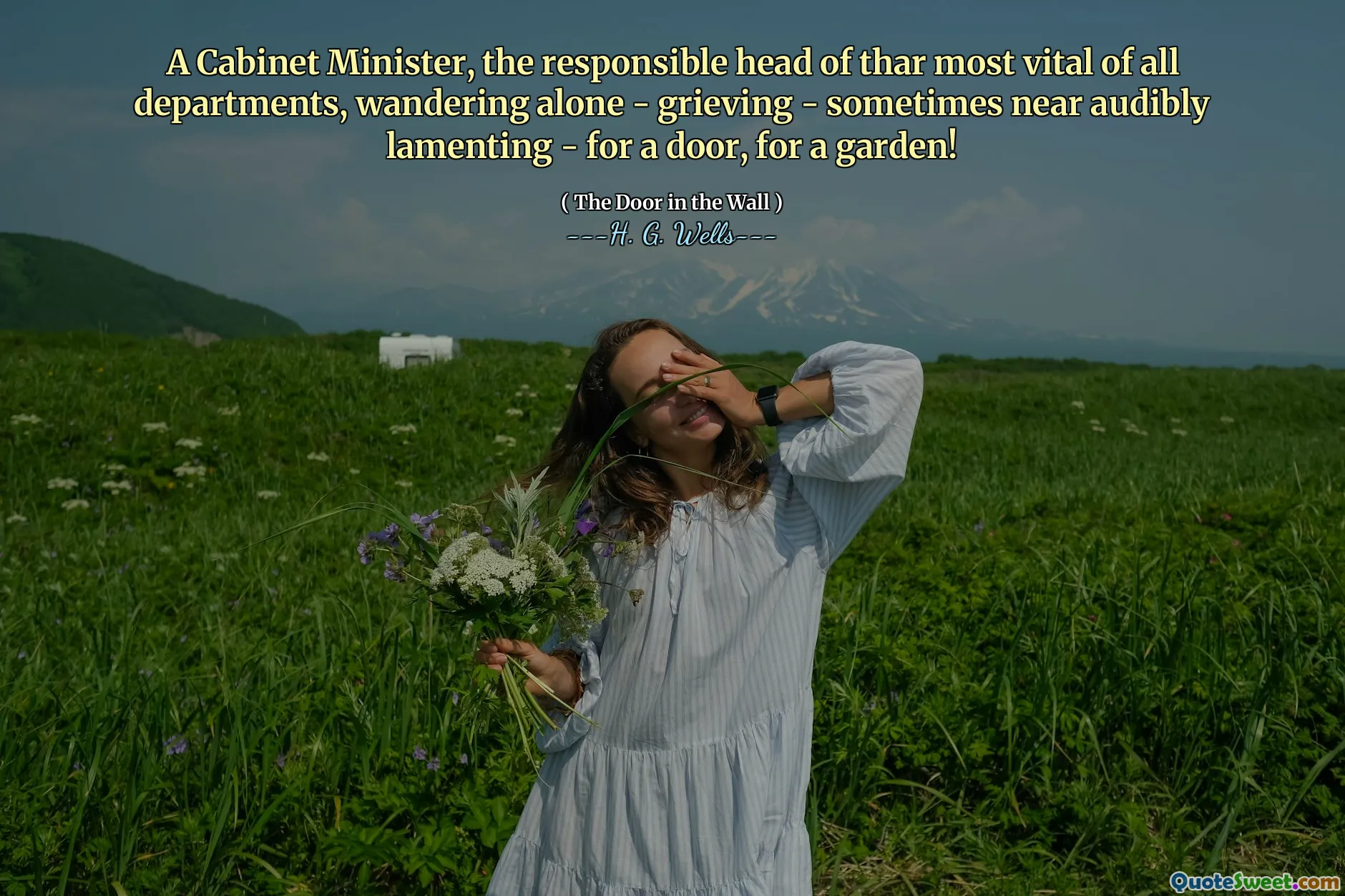
A Cabinet Minister, the responsible head of thar most vital of all departments, wandering alone - grieving - sometimes near audibly lamenting - for a door, for a garden!
The quote reflects the deep emotional struggle of a Cabinet Minister who feels isolated and burdened by his responsibilities. This individual, despite holding a significant position within the government, is depicted as lonely and yearning for simplicity, symbolized by the desire for a door and a garden. The imagery suggests a longing for escape from the complexities of his role and the weight of his decisions.
Through this portrayal, H. G. Wells emphasizes the contrasts between power and vulnerability. The Minister's grief signifies a loss of personal connection and the toll that political life takes on one's spirit. It underlines the universal desire for peace, beauty, and respite, suggesting that even those in high positions grapple with their emotional and psychological needs amidst their public duties.







